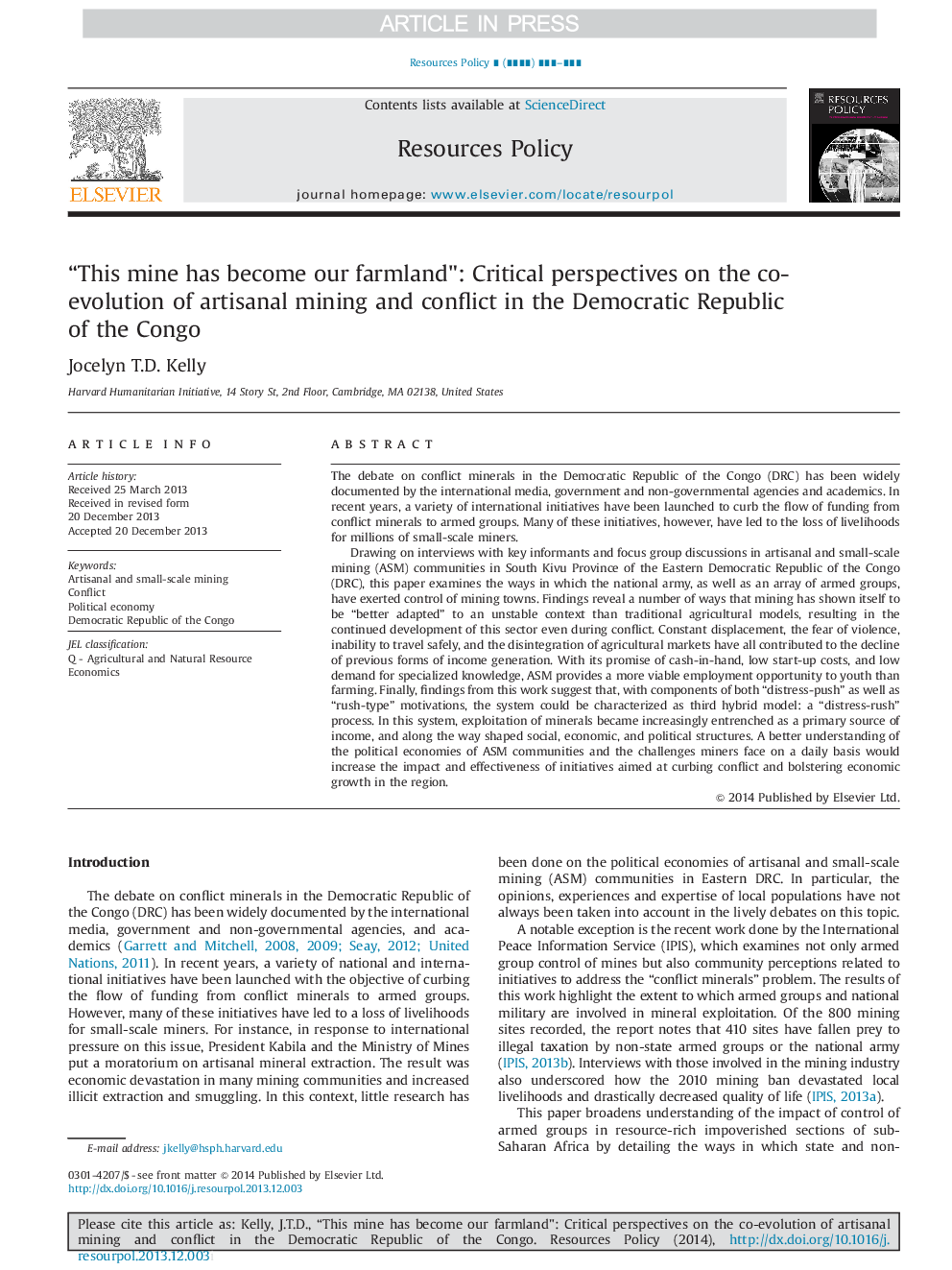| Article ID | Journal | Published Year | Pages | File Type |
|---|---|---|---|---|
| 7387938 | Resources Policy | 2014 | 9 Pages |
Abstract
Drawing on interviews with key informants and focus group discussions in artisanal and small-scale mining (ASM) communities in South Kivu Province of the Eastern Democratic Republic of the Congo (DRC), this paper examines the ways in which the national army, as well as an array of armed groups, have exerted control of mining towns. Findings reveal a number of ways that mining has shown itself to be “better adapted” to an unstable context than traditional agricultural models, resulting in the continued development of this sector even during conflict. Constant displacement, the fear of violence, inability to travel safely, and the disintegration of agricultural markets have all contributed to the decline of previous forms of income generation. With its promise of cash-in-hand, low start-up costs, and low demand for specialized knowledge, ASM provides a more viable employment opportunity to youth than farming. Finally, findings from this work suggest that, with components of both “distress-push” as well as “rush-type” motivations, the system could be characterized as third hybrid model: a “distress-rush” process. In this system, exploitation of minerals became increasingly entrenched as a primary source of income, and along the way shaped social, economic, and political structures. A better understanding of the political economies of ASM communities and the challenges miners face on a daily basis would increase the impact and effectiveness of initiatives aimed at curbing conflict and bolstering economic growth in the region.
Related Topics
Physical Sciences and Engineering
Earth and Planetary Sciences
Economic Geology
Authors
Jocelyn T.D. Kelly,
